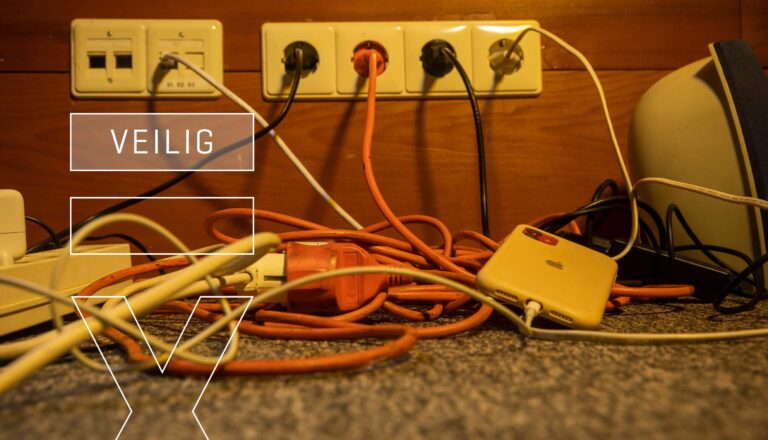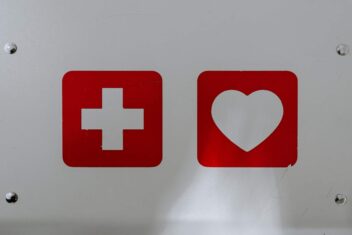Fire hazard from chargers, is it truly so?

We live in a time when we work very much with devices that are charged. From laptops to smartphones and from a mobility scooter to a hoverboard, everyone has one or more such devices in their home. Many people charge these things at night. This makes sense, because at those times you don't need them yourself and so there is plenty of time to hang them on the charger. But there are regular reports in the news about chargers causing fires. Along with such reports, there are also always people who claim that the fire risk is not that serious. What is the real situation? We, the fire safety experts at FeniksGroup, explain.
All appliances with a plug are a fire hazard
Actually, all electrical appliances are fire hazards to some extent. For instance, clothes dryers are known as the appliance that causes most indoor fires. But sandwich irons, TVs and laptops can also cause a fire. That doesn't mean you should just stop using them, but it does mean you should always be careful when using them. That immediately makes your home a lot more fire-safe.
Risk = chance x effect
Charging at night, is it wise or not?
But what about charging electrical appliances? As you read above, every electrical appliance is a fire hazard. So chargers in wall sockets and devices that are charging are also a hazard. The rule here is therefore that you should keep a close eye on the devices. If a device has a full battery and then continues to charge anyway, there is a small chance of overheating and thus fire. Therefore, charging your smartphone at night, for example, is not wise. It is better to charge the device while keeping an eye on it. That way, you can immediately remove the device from the charger when it reaches 100%. So charging at night may be convenient, but it is definitely not the safest option.
Can a charger also get too hot?
So a device that is charging can overheat, but that's not all. Even when you are done charging and you leave the plug in, you create a potential fire hazard. The charger can get hot, causing a fire. This is most likely to happen if you use a charger from an unknown brand. It is therefore recommended to always use the official charger of the device. The chance of an (iPhone) charger causing fire is small, but it can certainly not be ruled out. Want to make sure the charger doesn't overheat after use? Then unplug it when you have finished charging.
What to do in case of overheating?
Are you charging a device and feel it getting too hot? Then take it off the charger immediately. Also, if you smell a strong odour or if you see smoke, sparks or liquid, you should act immediately. Do this following these steps:
- Remove the device from the charger and unplug the charger from the wall socket
- If possible, place the device outside. Make sure it is out of reach of flammable materials.
- Call 112 if there is already a lot of smoke or if a fire starts anyway
Preventing a fire caused by a charger is better than curing it
With some good precautions, you can considerably reduce the risk of fire. Although the probability is obviously never 0%, you can make your home a little more fire-safe.
- Only use appliances, batteries and chargers from reputable suppliers.
- Always follow the manufacturer's instructions for use.
- Have appliances been used for a long time or intensively? Let them cool down before using or charging them again.
- Unplug devices when they are fully charged.
- Do not put a battery, or a device with a battery such as a mobile phone, in full sunlight.
- Only use the original charger that comes with the device.
- Be alert during charging, make sure you are there and do not go to sleep while the device is still on the charger.
- Has the device or battery been dropped? Then check for damage and replace it immediately with parts from the same supplier.
- Also pay attention to where you put the device while charging; make sure it can get rid of any heat and if it does get too hot, that it is not lying on something that can quickly catch fire such as dust.
A fire-safe working environment
Many electrical appliances are used not only at home, but also at work. Paying close attention to fire safety here too makes for a safer working environment for everyone. Check that all chargers are out of sockets before closing down for the evening. But also check which chargers are being used. Want advice on fire safety in your business? Then have a business risk assessment carried out. Contact us and we will be happy to see how we can make your business a little safer.
Sources:
brandweer.nl/brandveiligheid/llithium-ion-batterij
radar.avrotros.nl/nieuws/item/oplader-niet-grootste-veroorzaker-van-woningbrand/
August 2, 2022 I Emergency response, fire hazard, safety
Sharing is allowed, gladly even!

Would you like more information about our training courses, or do you have another question?
Fill in the form, we will contact you asap!
You hereby grant permission to FeniksGroup to contact you. Your contact details will not be shared with third parties.
Want to receive the latest safety insights in your mailbox?
Sign up for free!
No spam. You can unsubscribe at any time.


